This post contains affiliate links. Please read my disclosures.
Oat Flour is a brilliantly versatile gluten-free flour with a subtle buttery flavour and great nutritional properties. Unlike a lot of gluten-free flours it is economical and you can easily grind it yourself at home using rolled oats. Here's all the information you need to start baking with oat flour today.
Table of contents
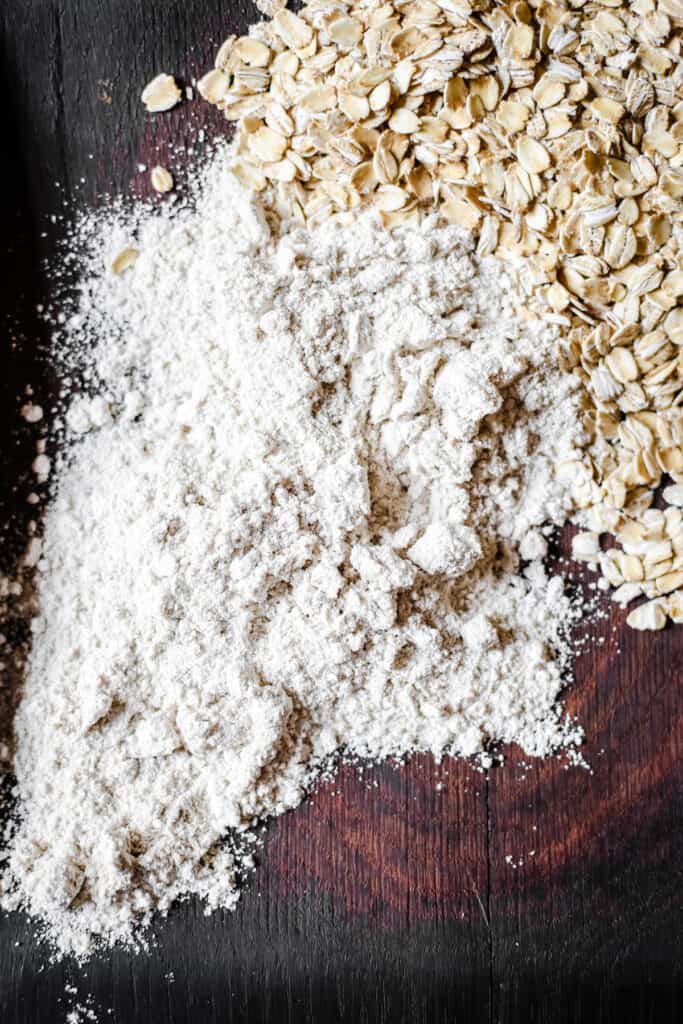
Is oat flour gluten-free?
Oats themselves are gluten-free but they are often processed in mills with other grains so there is a lot of cross-contamination. If you are gluten intolerant or coeliac you must make sure your oats or oat flour is certified gluten-free on the label. It’s also the unfortunate fact that some coeliacs and people with a gluten intolerance just simply can’t tolerate oats at all whether they are processed in a gluten-free environment or not. So always check with whomever you are baking for that oat flour isn’t on their blacklist.
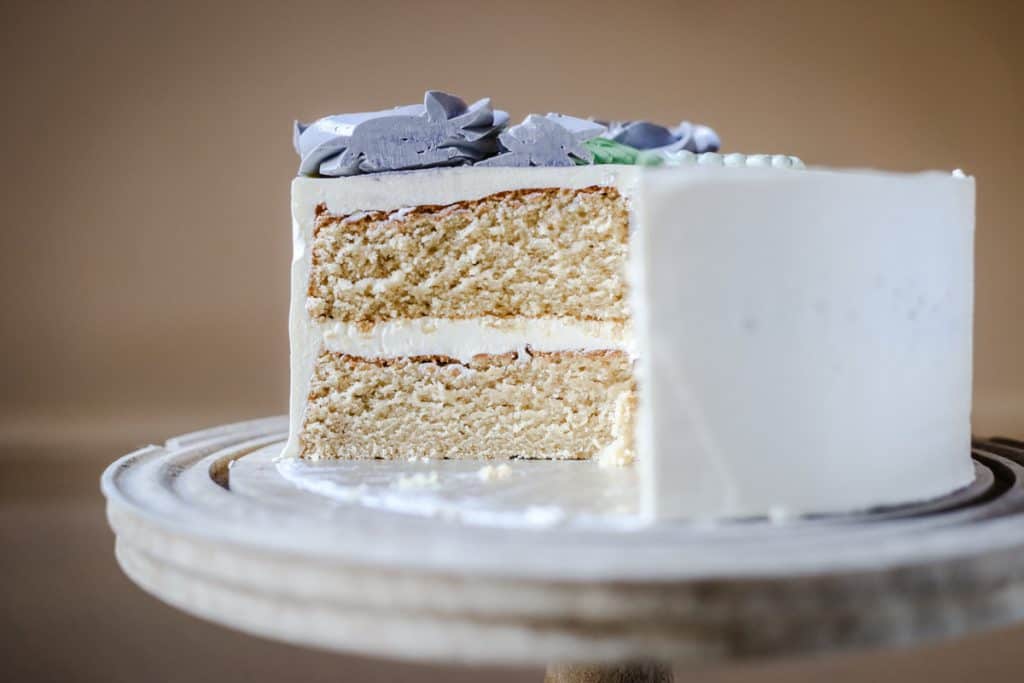
The benefits of oat flour
Oat flour carries the same benefits as oats themselves which are delicious and nutritious.
- They are high in a fibre called beta-glucan which helps lower cholesterol, supports your immune system and contributes to fight hunger pangs.
- The soluble fibres are also considered to lower blood sugar by reducing glucose absorption meaning oats are especially beneficial for diabetics.
- Oats are also good for your skin which is why you see oatmeal added to lots of skincare products.
- They are high in protein compared to other grains.
- They are a good source of magnesium too so assist in energy production.
READ MORE >>> Health Benefits of Eating Oats and Oatmeal
However, this is all just bonus material as oats also taste terrific which is carried through into your bakes and also add texture from beautifully fluffy bakes to flaky pastry.
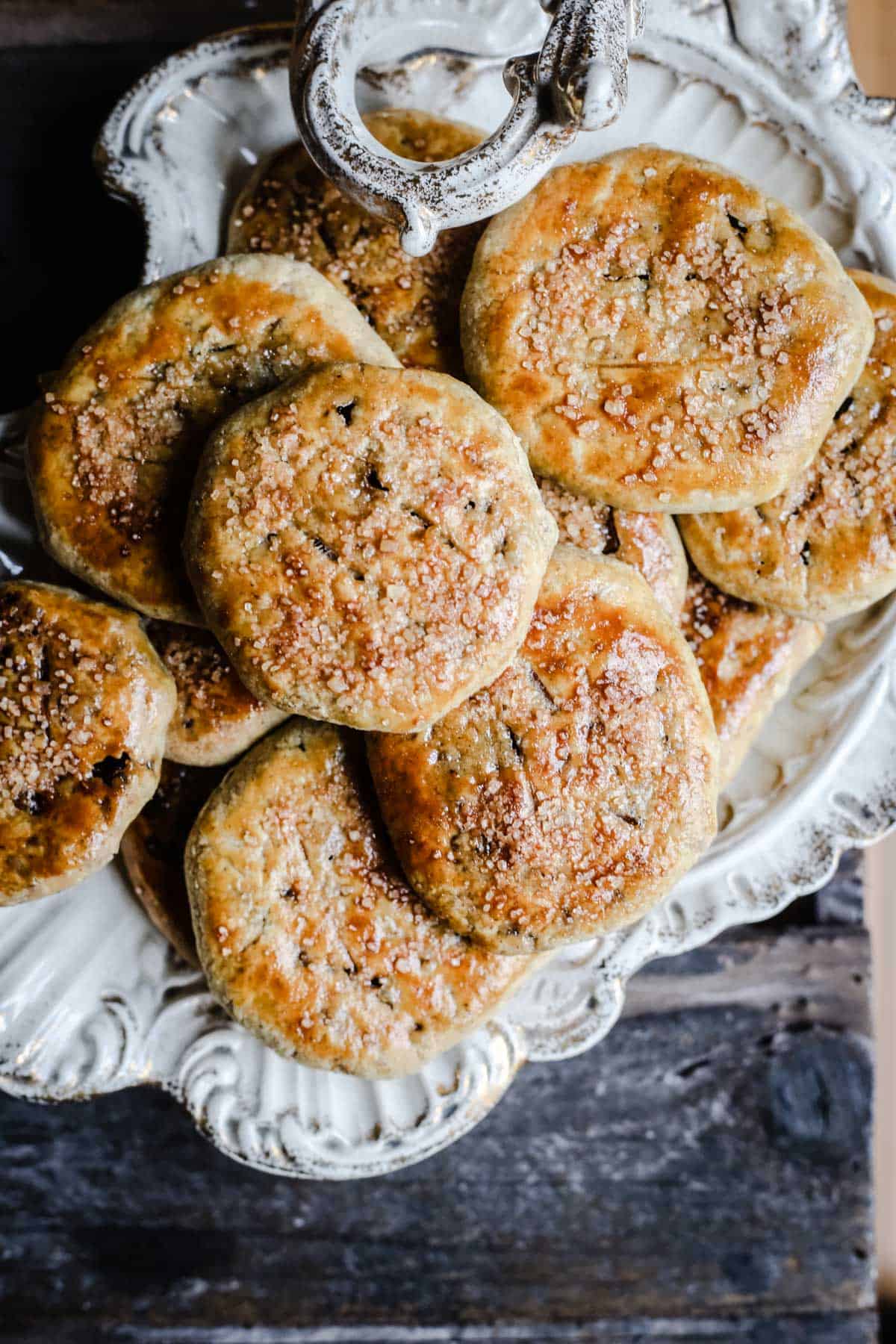
What is oat flour?
Oat flour is basically very finely ground oats. You can easily grind oats yourself to make oat flour but the finer the grind then the fluffier the cake which is why a commercial bag of oat flour is ideal.
However if you run out of your bag of oat flour there is a negligible difference in the homemade version. It’s also the much cheaper way to go.
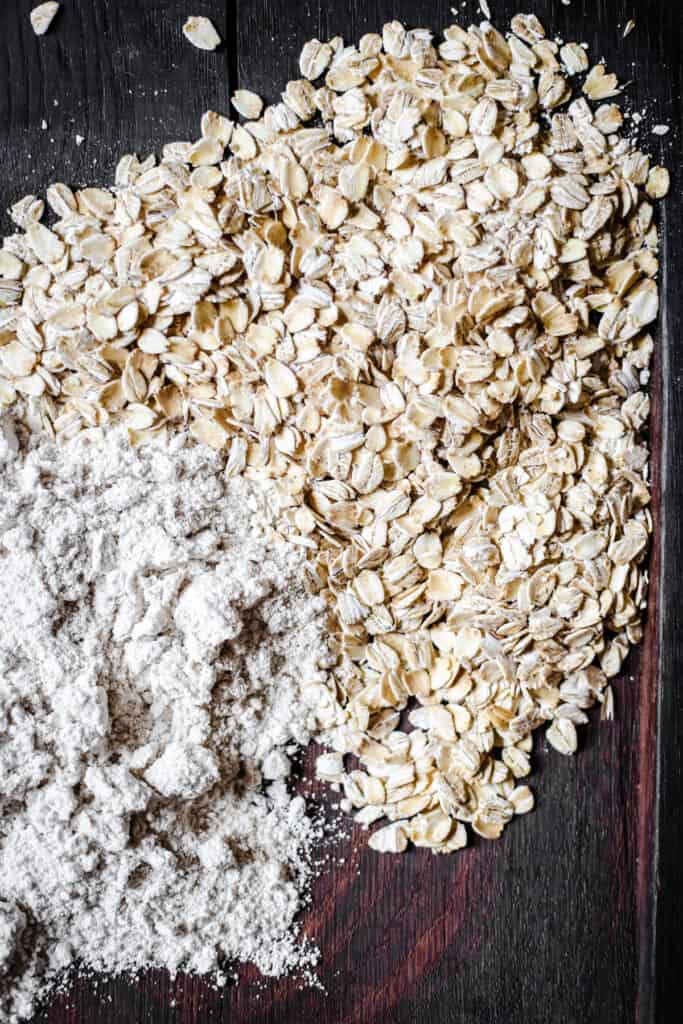
How to make oat flour
Oat flour is simple to make as all you are required to do is:
- Bung a heap of jumbo rolled oats destined for your porridge into the food processor and turn it on.
- Within about 30 seconds you will have a beautiful oat flour.
If you need a specific amount for a recipe then the ratio is:
1.25 Jumbo Rolled Oats : 1 oat flour
So to make 100g of oat flour then you will need 125g rolled oats.
Equipment you'll need
 Buy Now →
Buy Now → Can you substitute plain flour with oat flour?
It is possible to create bakes using merely oat flour but it is not wise to substitute oat flour into any flour recipe. Instead you should search out recipes which are specifically written with oat flour in mind.
Using oat flour by itself can also be very successful in cookies and biscuits. However, a delicious cake using just oat flour will need a lot of hand holding with its other ingredients to help the cake bind together. You will probably also need more eggs than a regular recipe to help the cake to rise.
Why use oat flour?
There are many alternative flours out there so why might you choose to use oat flour in your gluten-free cakes and bakes?
The reason would be for the bags of personality that oat flour brings to the table. There is none of this neutrality that wheat flour carries. Instead oats are imbued with a deliciously toasted butterscotch flavour which is almost sweet and pairs so beautifully with so many flavours and gives a lovely background note to your bake. It’s distinctive but doesn’t overpower.
Oat flour is also higher in protein and fibre than many other alternative flours which means it gives a lovely soft texture to your bakes, it fits perfectly in a homemade gluten-free plain flour blend as it works so well with other alternative flours.
How do you use oat flour in baking?
There are lots of recipes which benefit from the inclusion of oat flour. I love using it in biscuits and cookies but oat flour also works well in crumbles or crisps due to its crumbly chewy nature.
Oat flour can be put to excellent use in a gluten-free all purpose flour mix and I pair it a lot with white rice flour and tapioca flour which can be substituted for wheat flour in most recipes. The white rice flour gives the bake a structural integrity but the soluble fibres of the oats gives the bake a softer quality and negates the grittier properties of white rice flour. The tapioca is an excellent binder and mimics some of the gluten properties of wheat.
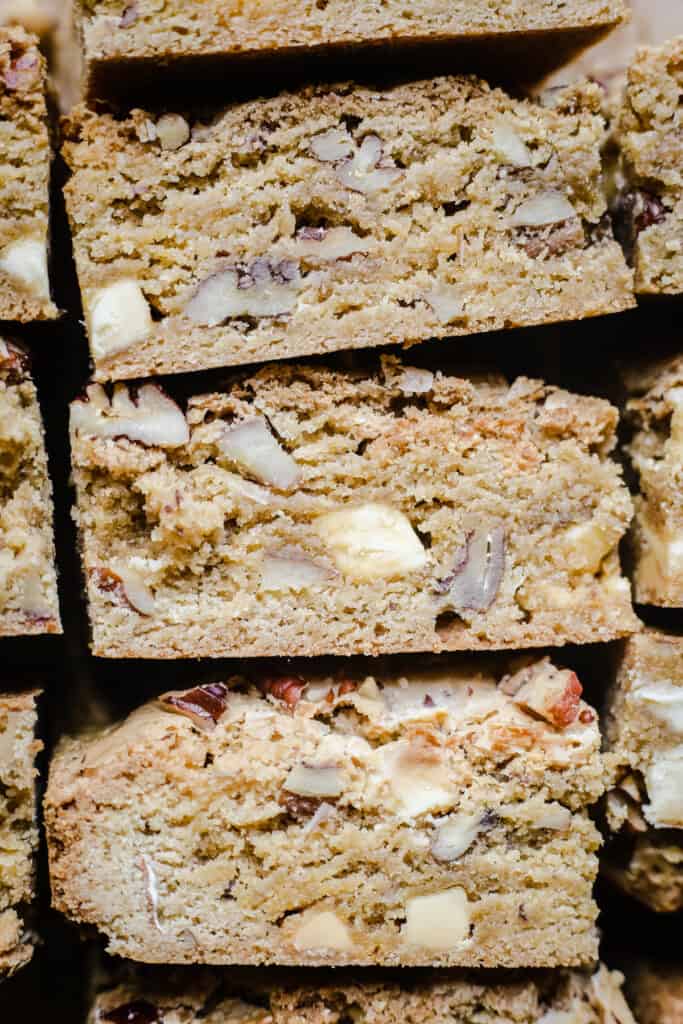
If you want to try using oat flour, these recipes are excellent places to start:
Digestive Biscuits
Strawberry Gooseberry Crumble
Red Velvet Cake
Steamed Chocolate Pudding
Best Gluten-Free Blondies
Raspberry Doughnuts
Golden Beetroot Carrot Cake
Salted Caramel Chocolate Espresso Cake
What flavours pair well with oat flour?
Take your pick, this is such a versatile flavour. Although its nutty toffee-like tones are an especially good match for:
- chocolate
- caramel
- vanilla
- nuts
- spices
- stone fruits
- berries
- bananas
- apples
- squash
- coffee
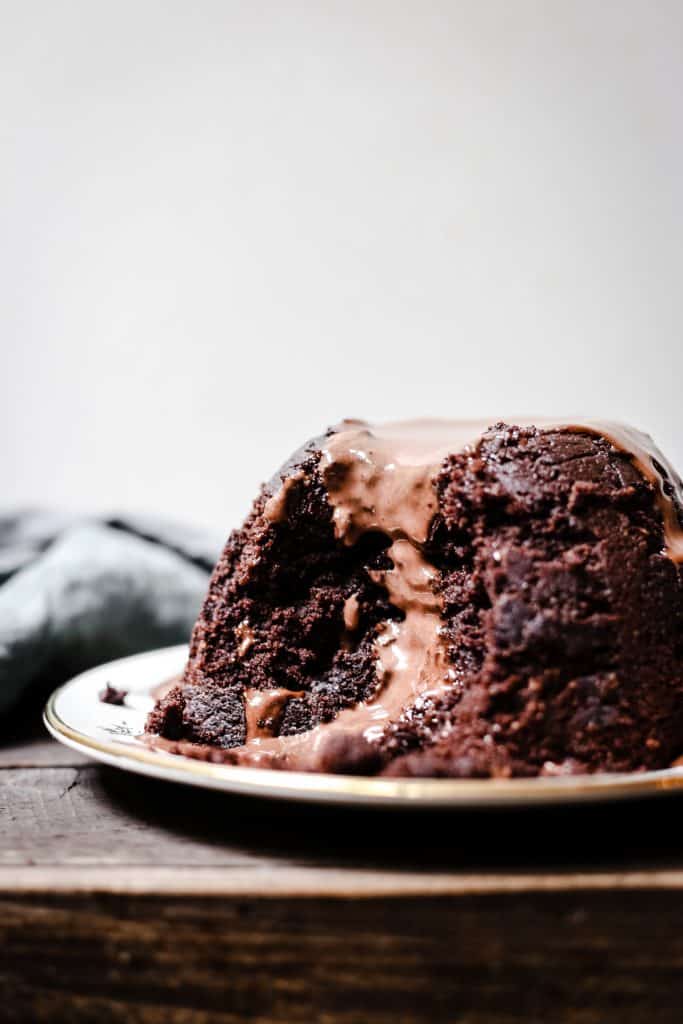
How to buy it
You can buy oat flour from many larger supermarkets and it is also usually stocked in health food shops. Failing that, you can always purchase online.
Buy now >>> Gluten-Free-Oat Flour
How to store it
Oat flour is best if you keep it in the fridge as the oils in the ground flour can oxidise quickly once exposed to air. It will keep well for up to 1 month but the best place to store wholegrain flours is the freezer where it will keep for up to 6 months.
If you want to learn more about baking with alternative and gluten-free flour then take a look at this post >>> The Ultimate Guide to Gluten-Free & Alternative Flours.

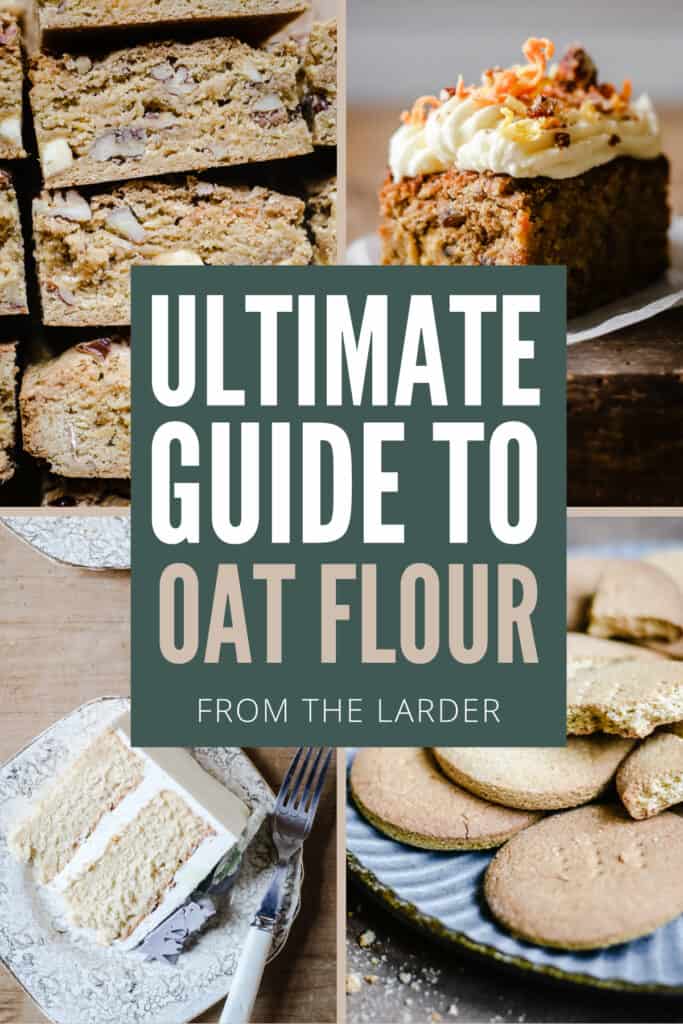
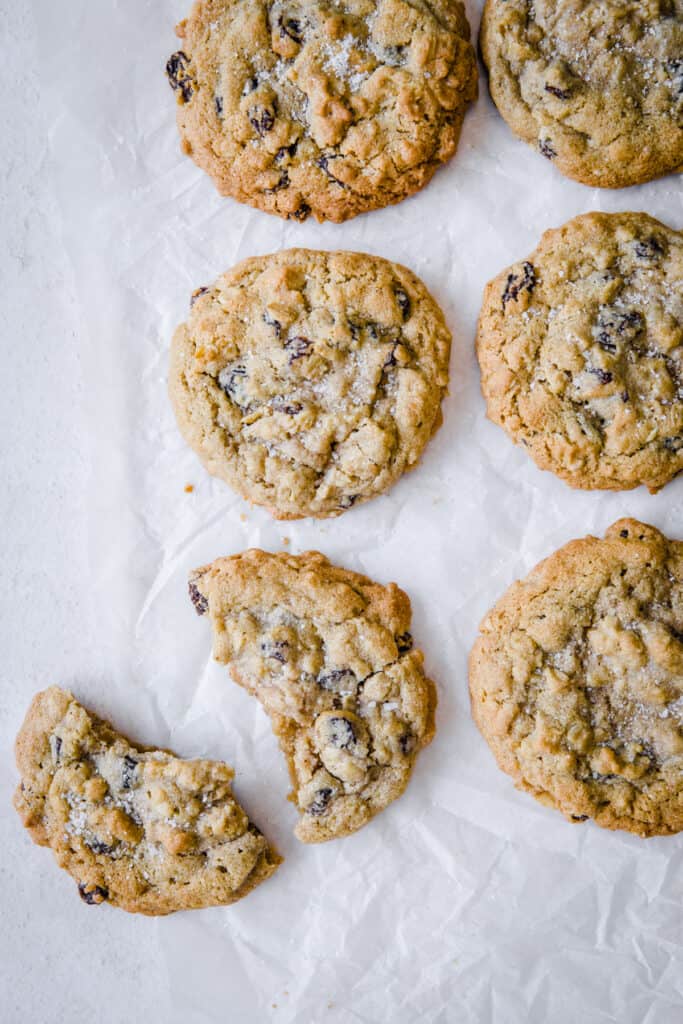

Bridget says
Hi what flour could I use to replace the almond flour please ? Look forward to trying them, any advice will be appreciated
Georgina Hartley says
Hi Bridget, it depends what recipe you are trying to make. Almond flour needs to be swapped with a flour with equally high protein content so that the end result is not affected. Sunflower Seed Flour is a good swap if seeds are allowed. However, it does have a stronger flavour and you will need to add lemon juice so your bake doesn't turn green!!
Sister Sue says
Greetings!
Is there a way to make oat flour self-rising? I only need 1 cup but have no idea how to do this. Can ya help a gal out?
Georgina Hartley says
I don't use self-raising flour but instead add baking powder or bicarbonate of soda to my bakes to control the rise. What recipe are you trying to make with the oat flour?
Mo says
What ratio do you recommend for the oat flour ans rice flour with tapioca blend?
Georgina Hartley says
The general rule is 70% wholegrain flours (oat) and 30% starchy flours (sweet rice flour and tapioca flour). I hesitate to give exact amounts as it completely depends on the cake you are baking. A chocolate cake won't need as much starch as say a vanilla cake. If I can help you with any particular recipe then do let me know but the 70:30 rule is a very good guide.
MLg says
Thanks so very much for sharing this information. I fiqured out a with ago I couldn’t tolerate zanthium gum. I use oat flour regularly but fine my baking often falls apart
What ratio of tapioca flour to oat flour do you use? Would potato starch work as well?
Georgina Hartley says
Yes you will need a starch to help your oat flour bind. It really depends on the recipe but as a general rule you need: 70% wholegrain flours (1-3 different flours) : 30% starch (1-2 different flours). Oat flour is a whole grain flour and tapioca flour is a starch. You may need another flour in the mix depending on what you need to achieve in the recipe. Potato starch doesn't give quit the same results as tapioca starch. Almond flour also works great with oat flour to give good structure and prevent a crumbly bake.
Rachel says
A question about this comment:
"If you need a specific amount for a recipe then the ratio is 1.25:1 jumbo rolled oats to oat flour so to make 100g of oat flour then you will need 125g rolled oats."
125g of rolled oats, when milled into flour, would still weigh 125g, wouldn't they?... Although milling would increase the volume.
Or do you mean that if a recipe calls for 100g regular flour, you would need 125g oat flour to substitute?
Thank you for your kind attention to my questions.
Georgina Hartley says
I recommend if you need a specific amount for a recipe then just start with the 1.25:1 ratio. You can weigh the oat flour again after it has been milled, but it tends to lose a bit of its weight in the grinding process - sticking to the processor blades etc. It's always super accurate if you just weigh it again before adding to your recipe so you can be sure you're adding the exact right quantity of oat flour.
Rachel says
Ok, I see what you're saying! Thanks.